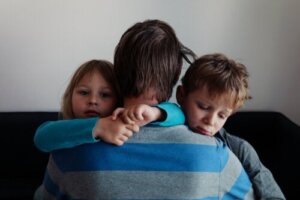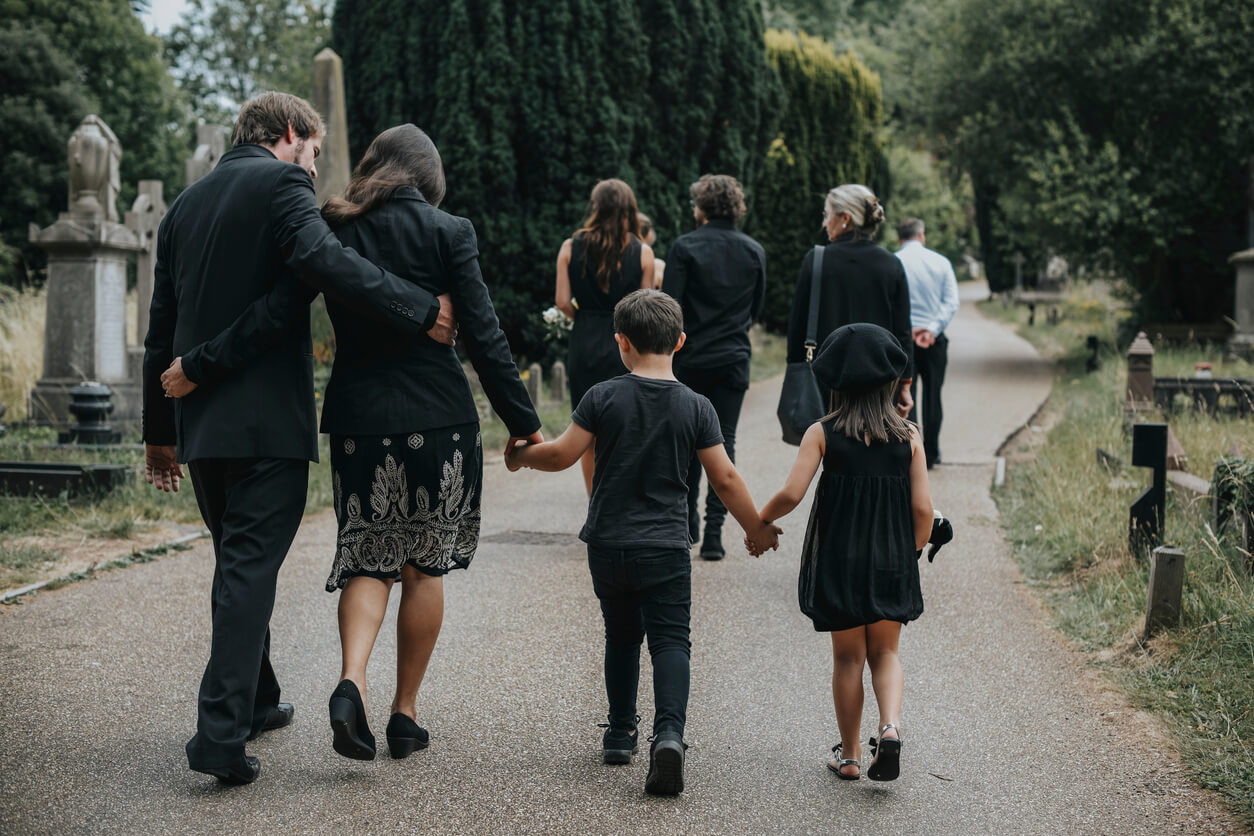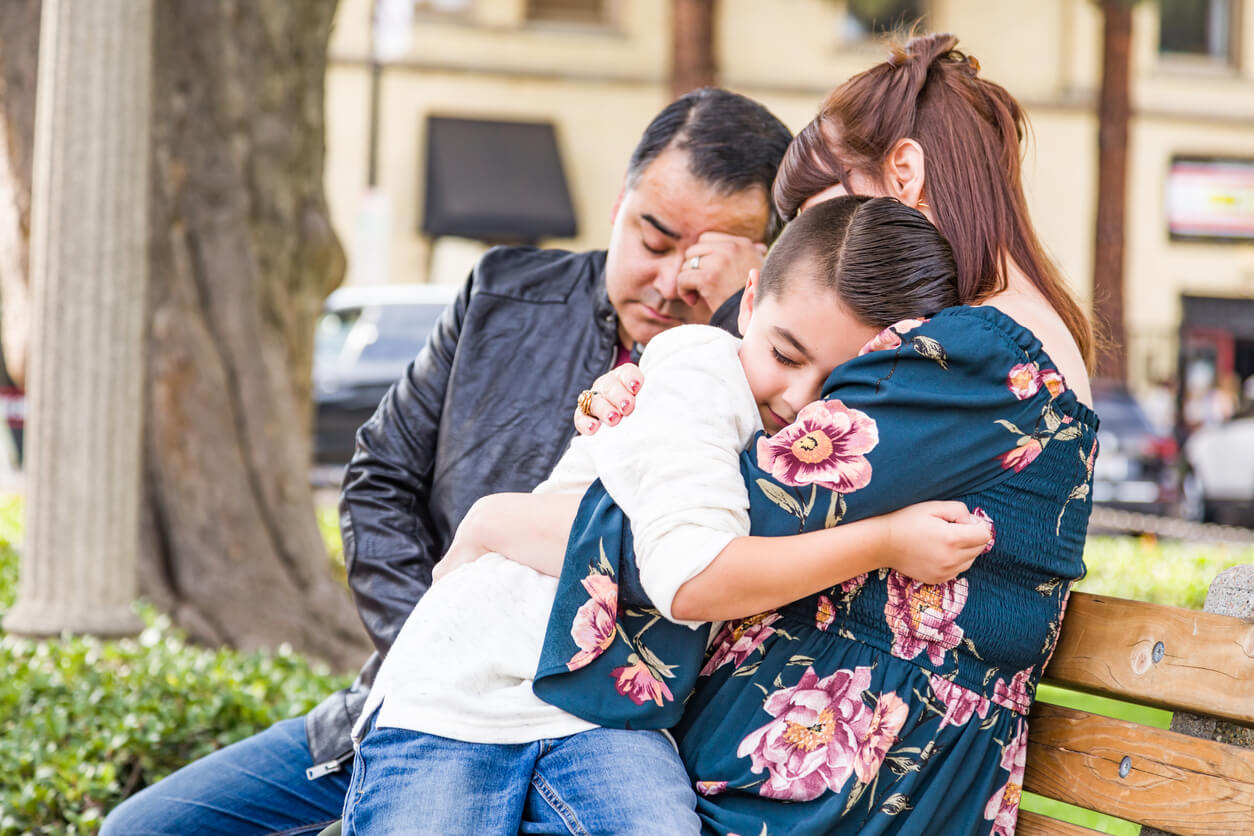Family Trauma: How to Face It Together


Written and verified by the psychopedagogue María José Roldán
When we speak of psychological trauma, we’re dealing with an emotional shock that produces damage that lasts over time in an unconscious way. It’s also known as an emotion or negative impression that’s strong and lasting. It’s like an emotional shock due to the intensity with which an event is experienced. In the following article, we’re going to talk to you about family trauma and how to face it together.
Trauma appears when we’re exposed to a traumatic situation that has caused us a lot of stress. An event that made us feel threatened or emotionally overwhelmed. When we’re not able to cope with a given situation, we go into shock. It can also appear when we suffer an intense fear that we haven’t been able to manage correctly.
It can happen once or it can be cumulative, such as having been exposed to different situations that are difficult to manage over a prolonged period of time. Emotions overwhelm us and we feel these experiences in an intensified way, something that can appear with psychosomatic problems, chronic anxiety, excessive worries, or dysfunctional behaviors.
What is family trauma?

When family trauma occurs, it’s because an event has affected the entire family. A surprising and negative event has overwhelmed all the members and they don’t feel capable enough to cope with it. When something like this happens, it’s like a turning point that changes everyone’s life. For example, it can be the sudden death of a loved one, the presence of mental disorders in the family, an addiction, or a very violent event, among others.
When it’s a traumatic event, it’s usually a situation that no one expected to happen, so it’s surprising and sudden. Everyone’s emotionally shocked and therefore, their coping capacities are overwhelmed.
The wound that’s formed in the family
The evolution of family trauma depends to a great extent on the magnitude of the event that has occurred or the significance of the event. Often, feelings of stress, anxiety, depression, and introversion or isolation appear. For many adults, it’s not always easy to talk about what happened without emotions running high.
It’s important to be aware that each family member may deal with the situation differently. There are many variables involved, such as age, sex, emotional balance, role within the family nucleus, or role in the traumatic event, among others.
Also, it’s common to have certain feelings, such as anxiety, stress, sadness, or depression, although each individual tries to deal with it in the best possible way. Such an event may even produce feelings of shame or guilt, as well as feelings of togetherness and strength. Many times, people feel that something could have been done to avoid it or that they could have foreseen the event or warned other members of the family.

How to cope with family trauma
Family trauma can last for a long time and can even reach several generations after the event. If it’s not dealt with, taboos, emotional blocks, and prejudices appear. It’s always necessary to look the situation in the face and confront it. Even if you feel like looking the other way or resisting the confrontation, it’s essential to take courage and face it.
If necessary, you can seek professional help. Therapy should be both individual and for the family as a whole so that the internal problems aren’t covered up. Although everyone needs their own time and this must be respected, no member of the family should be allowed to sink or think that they’re alone in the face of what has happened.
Unity is strength, and in the face of the most unexpected and cruel adversities in life, we must join forces so that, together, we can recover and enjoy again. We only have one life, so we can’t waste it and allow darkness to enter our hearts. Empathy and accompaniment are fundamental in family trauma.
When we speak of psychological trauma, we’re dealing with an emotional shock that produces damage that lasts over time in an unconscious way. It’s also known as an emotion or negative impression that’s strong and lasting. It’s like an emotional shock due to the intensity with which an event is experienced. In the following article, we’re going to talk to you about family trauma and how to face it together.
Trauma appears when we’re exposed to a traumatic situation that has caused us a lot of stress. An event that made us feel threatened or emotionally overwhelmed. When we’re not able to cope with a given situation, we go into shock. It can also appear when we suffer an intense fear that we haven’t been able to manage correctly.
It can happen once or it can be cumulative, such as having been exposed to different situations that are difficult to manage over a prolonged period of time. Emotions overwhelm us and we feel these experiences in an intensified way, something that can appear with psychosomatic problems, chronic anxiety, excessive worries, or dysfunctional behaviors.
What is family trauma?

When family trauma occurs, it’s because an event has affected the entire family. A surprising and negative event has overwhelmed all the members and they don’t feel capable enough to cope with it. When something like this happens, it’s like a turning point that changes everyone’s life. For example, it can be the sudden death of a loved one, the presence of mental disorders in the family, an addiction, or a very violent event, among others.
When it’s a traumatic event, it’s usually a situation that no one expected to happen, so it’s surprising and sudden. Everyone’s emotionally shocked and therefore, their coping capacities are overwhelmed.
The wound that’s formed in the family
The evolution of family trauma depends to a great extent on the magnitude of the event that has occurred or the significance of the event. Often, feelings of stress, anxiety, depression, and introversion or isolation appear. For many adults, it’s not always easy to talk about what happened without emotions running high.
It’s important to be aware that each family member may deal with the situation differently. There are many variables involved, such as age, sex, emotional balance, role within the family nucleus, or role in the traumatic event, among others.
Also, it’s common to have certain feelings, such as anxiety, stress, sadness, or depression, although each individual tries to deal with it in the best possible way. Such an event may even produce feelings of shame or guilt, as well as feelings of togetherness and strength. Many times, people feel that something could have been done to avoid it or that they could have foreseen the event or warned other members of the family.

How to cope with family trauma
Family trauma can last for a long time and can even reach several generations after the event. If it’s not dealt with, taboos, emotional blocks, and prejudices appear. It’s always necessary to look the situation in the face and confront it. Even if you feel like looking the other way or resisting the confrontation, it’s essential to take courage and face it.
If necessary, you can seek professional help. Therapy should be both individual and for the family as a whole so that the internal problems aren’t covered up. Although everyone needs their own time and this must be respected, no member of the family should be allowed to sink or think that they’re alone in the face of what has happened.
Unity is strength, and in the face of the most unexpected and cruel adversities in life, we must join forces so that, together, we can recover and enjoy again. We only have one life, so we can’t waste it and allow darkness to enter our hearts. Empathy and accompaniment are fundamental in family trauma.
All cited sources were thoroughly reviewed by our team to ensure their quality, reliability, currency, and validity. The bibliography of this article was considered reliable and of academic or scientific accuracy.
- Wolynn, M. (2017) Este dolor no es mío. Identifica y resuelve los traumas familiares heredados. Editorial: Gaïa
This text is provided for informational purposes only and does not replace consultation with a professional. If in doubt, consult your specialist.








